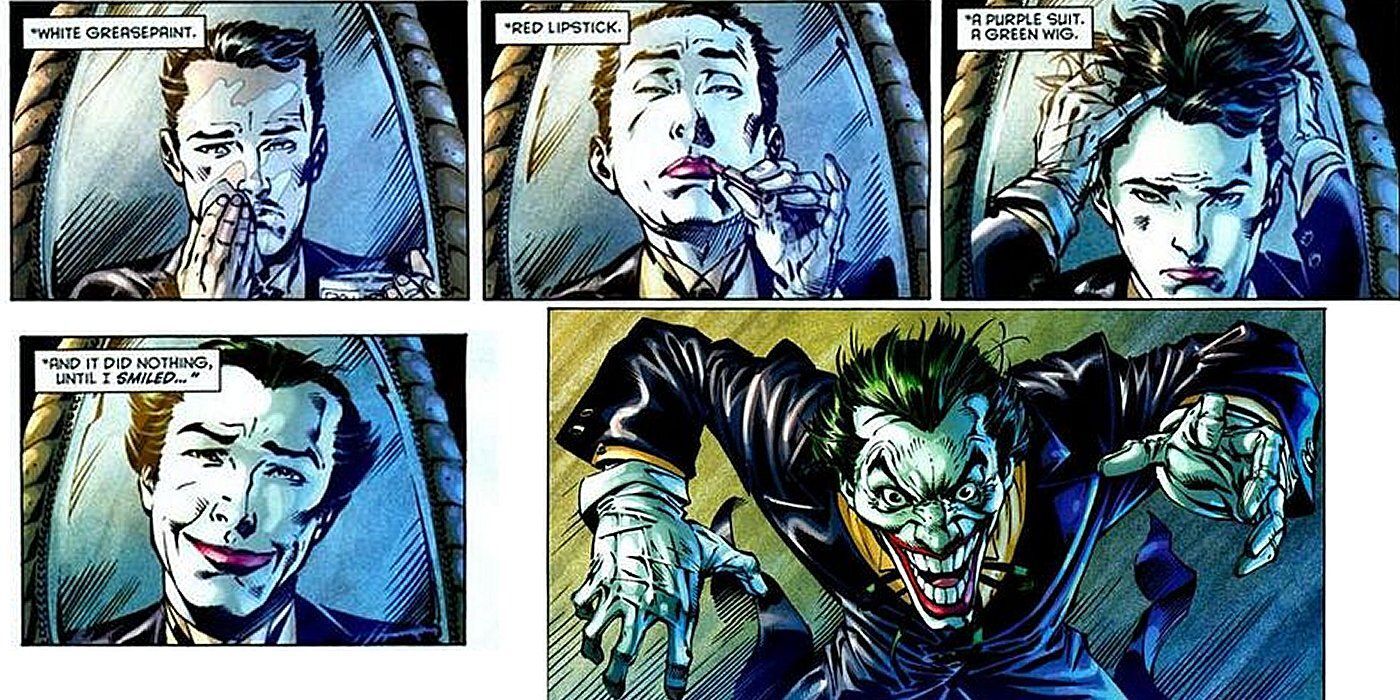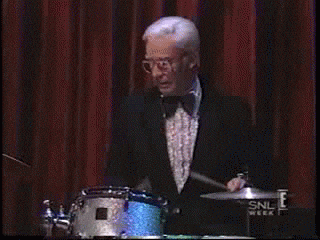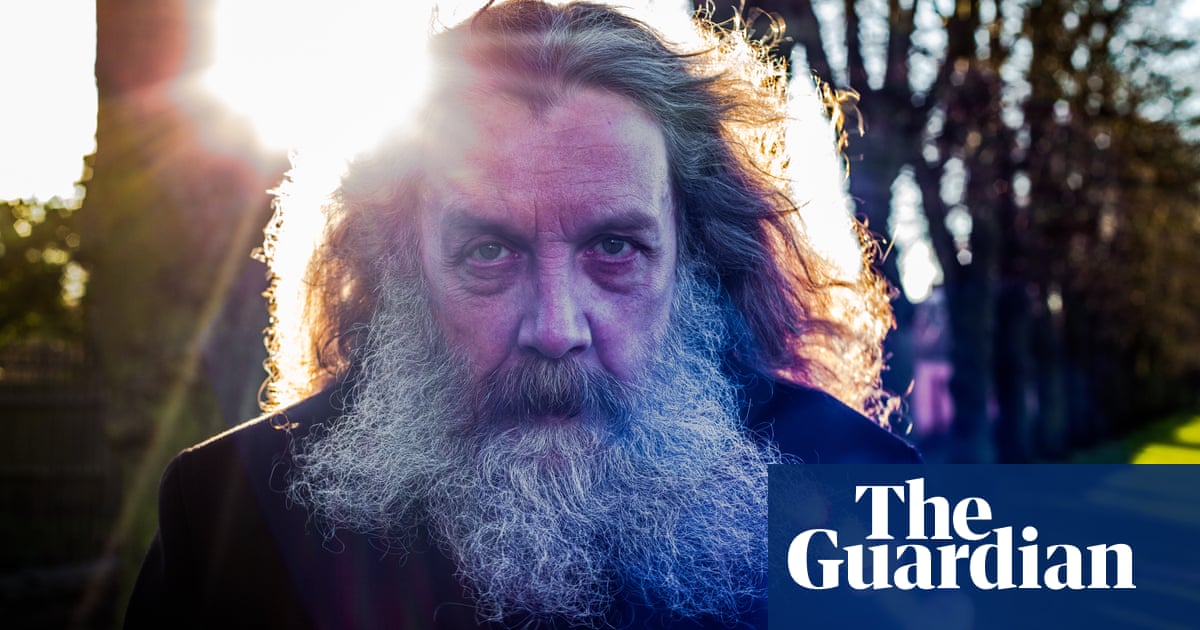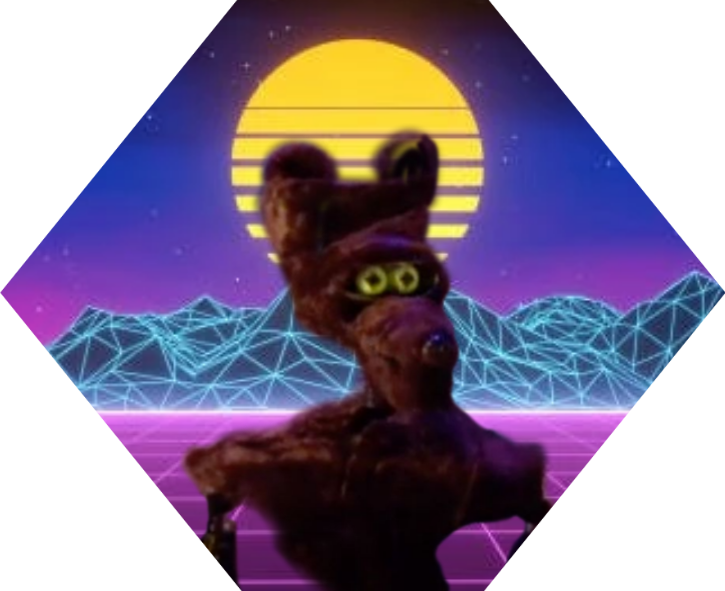Enthusiasm can be a productive force for good, but our culture has rapidly become a fan-based landscape that the rest of us are merely living in
Of that hardly-a-hundred schoolkids, office boys and junior librarians, the great majority were actively involved in their pursuit, publishing or contributing to a variety of – for the most part – poorly duplicated fanzines, or else going on to work professionally in the field, such as Kevin O’Neill, Steve Moore, Steve Parkhouse or Jim Baikie, all of whom were downstairs at the Waverley hotel that weekend, keen to elevate the medium that they loved, rather than passively complain about whichever title or creator had particularly let them down that month. Of course, this was the 1960s and the same amateur energy seemed to be everywhere, spawning an underground press, Arts Lab publications and a messy, marvellous array of poetry or music fanzines that were the material fabric of that era’s counterculture; flimsy pamphlets as important and innovative today as they were then, although considerably more expensive, trust me.
Soon thereafter, caught up in the rush of adolescent life, I drifted out of touch with comic books and their attendant fandom, only returning eight years later when I was commencing work as a professional in that fondly remembered field, to find it greatly altered. Bigger, more commercial, and although there were still interesting fanzines and some fine, committed people, I detected the beginnings of a tendency to fetishise a work’s creator rather than simply appreciate the work itself, as if artists and writers were themselves part of the costumed entertainment. Never having sought a pop celebrity relationship with readers, I withdrew by stages from the social side of comics, acquiring my standing as a furious, unfathomable hermit in the process. And when I looked back, after an internet and some few decades, fandom was a very different animal.
An older animal for one thing, with a median age in its late 40s, fed, presumably, by a nostalgia that its energetic predecessor was too young to suffer from. And while the vulgar comic story was originally proffered solely to the working classes, soaring retail prices had precluded any audience save the more affluent; had gentrified a previously bustling and lively cultural slum neighbourhood. This boost in fandom’s age and status possibly explains its current sense of privilege, its tendency to carp and cavil rather than contribute or create. I speak only of comics fandom here, but have gained the impression that this reflexive belligerence – most usually from middle-aged white male conservatives – is now a part of many fan communities. My 14-year-old grandson tells me older Pokémon aficionados can display the same febrile disgruntlement. Is this a case of those unwilling to outgrow childhood enthusiasms, possibly because these anchor them to happier and less complex times, who now feel they should be sole arbiters of their pursuit?
Never imagined fandom being described as being gentrified but here we are.
There are, of course, entirely benign fandoms, networks of cooperative individuals who quite like the same thing, can chat with others sharing the same pastime and, importantly, provide support for one another in difficult times. These healthy subcultures, however, are less likely to impact on society in the same way that the more strident and presumptuous fandoms have managed. Unnervingly rapidly, our culture has become a fan-based landscape that the rest of us are merely living in. Our entertainments may be cancelled prematurely through an adverse fan reaction, and we may endure largely misogynist crusades such as Gamergate or Comicsgate from those who think “gate” means “conspiracy”, and that Nixon’s disgrace was predicated on a plot involving water, but this is hardly the full extent to which fan attitudes have toxified the world surrounding us, most obviously in our politics.
It is genuinely unfathomable just how hard the culture industry has turned everything into slop. No one can tell me that music, literature and movies weren’t better ten years ago and not still better ten years prior. And the consumer has gotten so numb and stupid that they don’t even realize it.
I partially disagree. There are creative works that are being made today that are just as thoughtful, inspiring, aesthetically pleasing and engaging as the ones made in yesteryears. Our view of the art of the past is warped by the tendency for the good to be preserved and passed on while the bad is cast aside. However, in the past 30 years or so media corporations have gotten marketability down to a science in the name of creating safe investments, not stimulating art. That approach creates highly sucessful, super visible, and entirely bland slop like the Marvel movies and Call of Dutys of the world. Its not that its all worse, its just that the great stuff is lower profile. In my opinion the advent of high-bandwidth internet has partially counteracted this by making global distribution acessable to the everyman.
I didn’t say that there were no worthwhile creative works being made today. There certainly are, but they are few and far removed and there are more and more bricks being put in your way when you want to get to them. Algorithms make actual discoveries impossible. There are fantastic movies on Netflix from all around the world that the service will never ever recommend you, no matter how long you scroll through their site. Global distribution through the internet is a scam, if everything is just a click away you are only in competition with every other artist on the world, all the while peoples attention spans are being sold to the lowest bidder. Back when you had videostores or recordstores you had actual human beings who you could ask for recommendations, you could walk through the aisles and just pick out whatever looked interesting.
And even besides that, the economic realities of being an artist today are just going to make it more difficult to make good art. Why were there so many great artists in new york in the 70s and 80s? Because the rent was low. You won’t make great art if you have to work 60 hours a week just to pay your rent. Gentrification kills the scene.
Considering basically everything in the world has been going downhill over the last decades as late stage capitalism takes over every part of our western societies, it is a complete fallacy to think that art could somehow be immune from that.
I found a YouTube link in your comment. Here are links to the same video on alternative frontends that protect your privacy:
There are still smuglords that insist liking anything old is “nostalgia” as if that automatically disqualifies it, too.

I don’t agree that literature or music have gotten in any way worse since the 2000s, but for big budget movies specifically it feels like everything is either a big board-room created franchis, or an adaption or a remake of someone else’s creative idea.
I know it’s been said by others before but I find it so very weird that things get the -gate thing to signify some sort of scandal. Watergate was the hotels name.
English is weird I guess
it started in the 90s with the whitewater scandal and a few journalists started calling it whitewatergate as a bit, and then insert baudrillard quote and the next iteration the -gate suffix became its own signifier of “legal scandal involving major politicians”
Watergate was the hotels name.
I found a YouTube link in your comment. Here are links to the same video on alternative frontends that protect your privacy:
I love comics and I think he is 420.69% correct. Fandom in comics specifically has utterly stagnated the medium. There are so many titles that can’t go forward or when they do they are reverted back to a status-quo. Indie comics are really the only things worth reading right now. The big publishers are just re-packaging nostalgia back to you and selling it a huge mark up.
I have always found the high cost of “FANDOM©®™” really off-putting. Getting “Official” merch or limited-editions, special editions, limited-release exclusives, all that sort of stuff to be really sad to be frank. I feel like that is all the “nerd culture©®™” is at the moment. Buying stuff, not enjoying stuff. Buying it and showing it off, not really engaging with it. It’s about having the most stuff and flexing it on other and being seen flexing it. Having all your figures and statues in the background of your webcam as you rant about X character not giving you a boner.
I really think the only way forward is the whatever the hell is going on in independent streams of creation. I think it’s infinitely better for culture for us to create things inspired by the things we love/loved rather than endless consuming whatever the market puts out. I really think supporting independent artists/creators/authors/makers of things that are rad is the only way to heal this utterly broken mess of a “culture”.
There are, of course, entirely benign fandoms, networks of cooperative individuals who quite like the same thing, can chat with others sharing the same pastime and, importantly, provide support for one another in difficult times. These healthy subcultures, however, are less likely to impact on society in the same way that the more strident and presumptuous fandoms have managed.
Yeah I think that sort of thing is probably the best way forward.
Buy indie games, buy indie comics, buy indie music, enjoy your werid-o shit you think only four other people know about, all that enjoy. Share it, promote it, create your own. Engage with the arts in a meaningful way.
Don’t be a fan, be someone who like a thing.
There are so many titles that can’t go forward or when they do they are reverted back to a status-quo
Even fucking Harley Quinn is being pulled back, title by title, into her default state as the Jonkler’s abused girlfriend. Allowing her lasting happiness with Poison Ivy means something might lastingly change and the hogs can’t have that.
Part of what I hate about lazy “multiverse” crossover gimmicks is they just about require default state or even Flanderized versions of such characters.
Even that semi-decent cartoon show they’re doing? I imagine hogs fucking hate it
I think she’s safe in that one cartoon but in other newer versions of the character in other media she’s being shoved back into abused Jonkler girlfriend status.

Including the main comics? I thought Batman just recently revealed to her who he was and let her hang out in the bat cave
The main comics have so many spinoffs and retcons that I don’t know if there really is one true continuity anymore, even after that “Crisis on Infinite Earths” retro-annihilation of so many of them.
Allowing her lasting happiness with Poison Ivy means something might lastingly change and the hogs can’t have that.
As a comic dork I always hated how comics treat relationships. Outside of some comics like Saga (which is a great read), most comic relationships traditional/atypical/gay/straight/committed/flings/whatever are treated more as plot devices rather than things that make a character interesting. Which is a shame because love and relationships when they mean something is what makes them cool. For good or bad, it’s just a good place for storytelling. There is nothing worse than seeing Ivy and Harley hinted at knowing that it will be dissolved in like next month’s issue. That sort of eternal tease of a relationship is just so wack to me.
Fuck man that’s part of the reason Mr.Freeze is a such a good character to me because that he is defined by the love his wife. Literally a wife-guy but the good platonic ideal of it. That’s just a cool character trait, like being motivated by love in a world of super-people and all that insanity really gives a wonderfully human. Which
Part of what I hate about lazy “multiverse” crossover gimmicks is they just about require default state or even Flanderized versions of such characters.
Exactly man. Fuckin’ exactly. A “multiverse” creates a boundless space for exploring what makes a character a character. What are their defining traits, what is their core identity, what are the things that make them who they are across all versions of themselves. What are the things they think are a part of them but happen to just be cicumstance. Would they be different if things were different? Would they always find a way to create the version of themselves we know?
Really plainly cool writing space if you ask me, but because that involves risk, they don’t really show characters or ideas explore outside of “What if Character X, but with a mild cosmetic change or different background”. Which is such a bummer because you can really do some cool stuff, you can explore the very idea of identity cross the infinite expanse of the multiverse.
Exactly man. Fuckin’ exactly. A “multiverse” creates a boundless space for exploring what makes a character a character. What are their defining traits, what is their core identity, what are the things that make them who they are across all versions of themselves. What are the things they think are a part of them but happen to just be cicumstance. Would they be different if things were different? Would they always find a way to create the version of themselves we know?
Really plainly cool writing space if you ask me, but because that involves risk, they don’t really show characters or ideas explore outside of “What if Character X, but with a mild cosmetic change or different background”. Which is such a bummer because you can really do some cool stuff, you can explore the very idea of identity cross the infinite expanse of the multiverse.
I hate the Batman franchise now, especially because of its fascist pro-cop leanings especially around and after the Nolan era (and Miller too, probably), but one alternate universe idea I actually liked was establishing a surprise identity for that particular Batman’s Joker: someone that knew his weaknesses, his motivations, how his detective methology worked, even knew how he was raised especially after becoming an orphan in a way that could keep one step ahead of what was ostensibly the world’s greatest detective:
spoiler
Alfred!

As a comic dork I always hated how comics treat relationships. Outside of some comics like Saga (which is a great read), most comic relationships traditional/atypical/gay/straight/committed/flings/whatever are treated more as plot devices rather than things that make a character interesting.
It’s why I feel Midnighter and Apollo’s relationship works, which adds depth to their characters - you also see their personal life but if Midnighter were in trouble, Apollo isn’t riding the rescue, Midnighter is figuring out how to kill everyone in the building with that plastic spoon that was carelessly left lying around.
It’s why I feel Midnighter and Apollo’s relationship works, which adds depth to their characters
Agreed! It’s a bit of a shame the two of them were born out of what I would call a low-point in Wildstorm’s edgy history but they are objectively a interesting couple. Yes they are “What if Batman and Superman… but gay?”, which is reductive and lame but there are much more than that. They are two people who have complex and nuanced feelings for each other and their relationship has WAYYYYY more depth that most of the mainstays of the genre. Which is crazy because If I recall Midnighter correctly we was like the precursor to Billy Butch creatively speaking. Which is an odd thing to think about.
I haven’t been keeping up with whatever the modern incarnate of the character is,
And it’s only gotten worse as comics-based media expanded into other media, especially movies. You get the feedback loop of reworking books to appeal to movie fans and everything just descends into generic slop that much quicker just for it all to get stirred up again with a shift in IP rights into new shit soup that tastes suspiciously like the old shit soup.
Yeah I think about that all the time. Which is a shame to me, in the sense that it’s really reduces these comics’ respective histories to “whatever is poppin’ in the box office these”/“whatever our marketing plan for movie release for Quarter X” is. I’m not saying all these comics have super great histories but they do have rich and dense histories, which are worth respecting and reading.
I think it’s infinitely better for culture for us to create things inspired by the things we love/loved rather than endless consuming whatever the market puts out. I really think supporting independent artists/creators/authors/makers of things that are rad is the only way to heal this utterly broken mess of a “culture”.
…
Buy indie games, buy indie comics, buy indie music, enjoy your werid-o shit you think only four other people know about, all that enjoy. Share it, promote it, create your own. Engage with the arts in a meaningful way.
Sounds like the start of a beautiful new Lemmy community, a bit like !noyank@lemmy.ml - it’d fit with the Lemmy… “ethos” as it’s all a bit DIY, non-mainstream, etc.
This is a great take in general. I feel like all of this plays very well with the idea of modern “aesthetics” being miniature brand identities. Fandom dynamics bring perpetuated across disparate forms of consumption. It’s also good to see someone other than Peter Coffin talking about how fandom relates to capitalism.
As much as I enjoyed the spiderverse movies in spite of being burned out on the marvel slop otherwise, I kept getting this weird nausea when they showed all the multiverse Spidermans because I was like “this is the hollowing out of a character into a costume, an interchangeable brand that can be anybody as long as it connects itself to The Property”
One consequence of “multiverse” slop mixing (especially in cynical cash-grabs like “Multiversus”) is that any character development must be forcibly reverted back to default state to make sure the IPs are recognizable and lack distinct characteristics apart from general associations with each property.
This is central premise and conflict of the second movie fwiw. The line “it’s a metaphor for capitalism” is present in that one.
Haven’t heard that name in many years.
That’s for the best
Our entertainments may be cancelled prematurely through an adverse fan reaction
Already happening. Multiple entertainment corporations are already appointing committees of treat hogs to squeal with rage if the treat is woke or otherwise isn’t sloppy enough.
https://www.avclub.com/studios-consult-superfans-focus-group-report
”Hire fans!”
Unthinking fascist slop gets shat out

It’s going to be so bad, if you thought the soulless pandering was bad, it’s going to be 1000% times worse with this fan b.s.
We’re going to have a growing demand for entertainment archaeologists that have to dig deep to find readable and restorable data fragments of pre-enshittified media, especially before the LLM derivative slop flood, aren’t we?
This trend is just a continuation of the death of mass media. The process of curating good media will continue to be “democratized” (read: algorithmified) and our consumption habits will continue to pestered with more obnoxious self-promotion that blurs the line between original content and advertisement. This self-promotion used to be processed by industry professionals and as more and more artists find success outside of those official channels, existing monopolists will find ways to subsume the process.
The more depressing thing is that so many people craft their personality around the products they buy. So vapid, empty and soulless.
Reddit used to have this digital canvas gimmick where anyone could add one pixel to it during timed intervals, encouraging people to be creative and work together to express themselves.
Most of that digital canvas was covered in corporate logos, such as car companies.

I’ve heard it offline too, like during a “faculty team building” exercise where one of the most annoying liberals there, during a “what fictional character do you identify most with” waste of time, said “I am a Lannister, because I always pay my debts.”

Harry Potter magic calipers shit was pretty common too.
When it comes to material products, Te$la buyers are among the worst when it comes to personality substitution.
People brand themselves with corporate logos. You have people walking around being proud that they’re a product of Nike.
“Disney families” horrify me.
Harry Potter magic calipers shit was pretty common too.
But enough about MBTI tests.

Spoken like a Hufflepuff

Fandom becomes a substitute for personality in a consumerist culture.
Fandom is the height of treatbrain
I’d venture deeper on one side with easy access to all voices is easy to us to get to any confirmation bias so we can get a sense of belonging for approval and security even if the very thing we look for is as fake as the earth being flat, wich in it’s new twist became a gigant hollow ice ball. We make a dangerous echo chamber were we twist our core beliefs in a downward spiral of biases based on the few fragments we cherry pick. I may hate the BS they say sometimes but I keep unblocked the opiñons from the other side, I even talk in person with the.most antiwoke guy I know.
(Gotta get down the bus I’ll edit more later)
Edit now in the second bus
On another side we live in a predatory capitalism. One of my daughters came with a Pokemon shirt some time ago and they love that franchise, I tried explaing them the crazy success story it was back when I was little, they were not amused by it. Cause we have loads of franchises to go around. And any shareholder dream is to hit the next big one, cause is a money printing machine. No matter how bad the next product is, it will sell. All those greedy corpos come frothing at the very idea of taking whatever you like, make it into a franchise and make you pay for it. But as soon as it dries up they drop it like it where a turd, clean their hands and flush the toilet. How do you not expect with that thefandom you.built do not become toxic? Maybe the next statement sounds stupid but people like to like something, and share it with others. But when it gets vilipended used and reused to just sell the people yo took the effort to fall in love with the product obviously is gonna complain.Another Glycon worshipper W
See, this is why I buck against norms like Rorschach. He’s my hero.






















